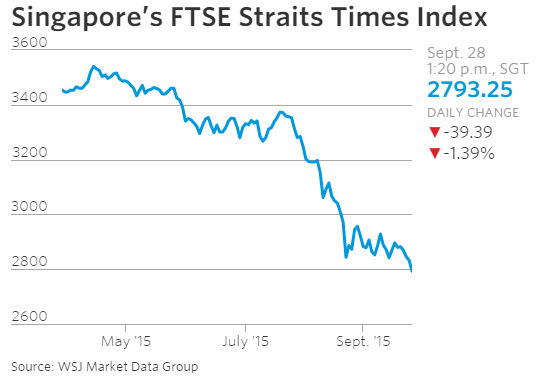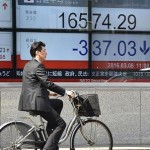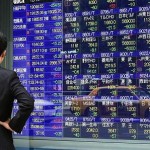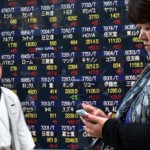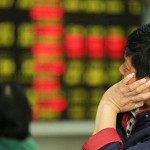Asian Shares Mostly Down; Singapore Enters Bear Market
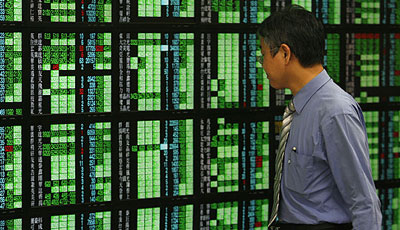
Japan shares fall as investors rethink likelihood of easing
Japanese shares led Asian markets lower Monday, as investors reconsidered the prospects for further monetary easing, while stocks elsewhere mostly fell as evidence of China’s slowdown continues to build.
The Nikkei 225 Stock Average was down 1.1% and the Shanghai Composite fell 0.2%.
Singapore’s FTSE Straits Times Index was down 1.6%, putting the index in bear market territory—defined as a 20% fall from a recent peak.
Meanwhile, Australia’s S&P/ASX 200 was up 0.9%.
Stocks in Singapore, a commodities-trading hub, have come under fire amid signals of China’s stalling economy and weak business climate, which have hurt commodities prices. Earlier Monday, China reported its August industrial profits fell 8.8% from a year earlier.
Singapore-listed companies that focus on offshore marine engineering and commodities led the declines, with SembCorp Marine down 3.4% and Noble Group shedding 2.2%.
In Japan, some investors are reassessing how realistic expectations of additional monetary easing by the Bank of Japan would be, which contributed to selling in Tokyo, said Soichiro Monji, general manager of economic research at Daiwa SB Investments.
Shares in Japan on Friday rose 1.8%, partly fueled by hopes of more monetary easing after Bank of Japan Gov. Haruhiko Kuroda met with Prime Minister Shinzo Abe at the prime minister’s residence early that afternoon to discuss the economy.
“The buying [Friday] probably wasn’t based on the serious assumption that they will act,” Mr. Monji said. “Some are just saying they should act because stocks are down.”
Mr. Abe also said during a news conference after the market closed Friday that he wasn’t considering an immediate stimulus package.
Japan’s economy is sputtering, prompting some economists to question whether the “Abenomics” growth program is at risk of failing. Mr. Abe said Thursday that he would aim to increase the size of the economy by around a fifth, without specifying exactly how or when that would be accomplished. Economists were skeptical.
Still, some see buying opportunities in Tokyo, where corporate earnings are at record highs. The Nikkei is near a bottom and a drop in commodity prices will provide “significant merits” to the economy in the longer term, said Masayuki Kubota, chief strategist at Rakuten Securities.
In China, the continued crackdown on illicit margin lending also is adding some pressure to shares, said Jacky Zhang, an analyst at BOC International. Outstanding margin loans totaled 581 billion yuan ($91.1 billion) as of September 25, compared with the peak of 2.26 trillion yuan in June, according to data provider Wind Information Co. China’s stock regulator previously demanded brokers to clean up all illegal margin loans accounts by the end of September.
By midday, turnover on the Shanghai market dropped to 91.7 billion yuan, the lowest level this year, said Li Lei, analyst at China Minzu Securities.
“The slim trading volume suggests persisting negative outlook among investors,” he said.
In Australia, meanwhile, shares in M2 Group Ltd. jumped as much as 18.5% after it agreed to a merger with rival Vocus Communications Ltd. in a deal that would build Australia’s fourth-largest telecom company, with a market value of more than 3 billion Australian dollars ($2.1 billion). The deal marks the latest shake-up of the industry as smaller companies strive to break the dominance of Telstra Corp. over phone and Internet services, and as Australia continues to roll out a national broadband network.
Global investors this week will likely focus on key U.S. and Chinese economic indicators, including U.S. nonfarm payroll figures and official manufacturing data from China, after U.S. Federal Reserve Chairwoman Janet Yellen said she expected a rate increase by the end of this year.
Ms. Yellen’s comments, delivered late Thursday, were taken as a sign of confidence in the U.S. economy.
Markets in Hong Kong, Taiwan and South Korea were closed.
Source: WSJ – Asian Shares Mostly Down; Singapore Enters Bear Market









